Find Help
More Items From Ergsy search
-

5 Facts about Alcohol and Britain
Relevance: 100%
-
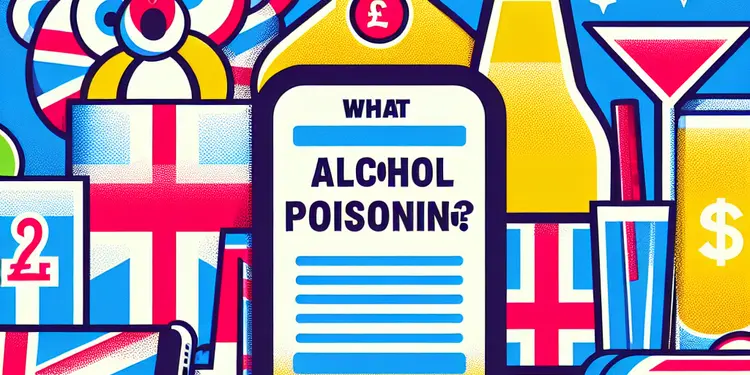
What is alcohol poisoning?
Relevance: 47%
-

Alcohol Awarerness Week
Relevance: 47%
-

FASD Foetal alcohol
Relevance: 45%
-

What is safe alcohol consumption in Adults?
Relevance: 43%
-
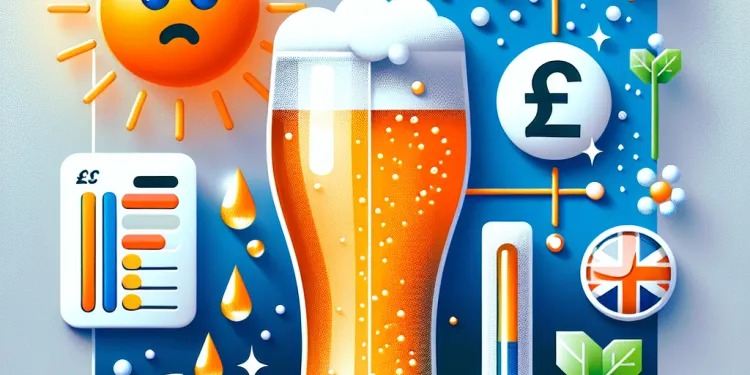
Should I avoid alcohol during a heatwave?
Relevance: 42%
-

Can alcohol worsen sleep apnea?
Relevance: 42%
-

Is it possible for alcohol alone to cause similar symptoms?
Relevance: 41%
-
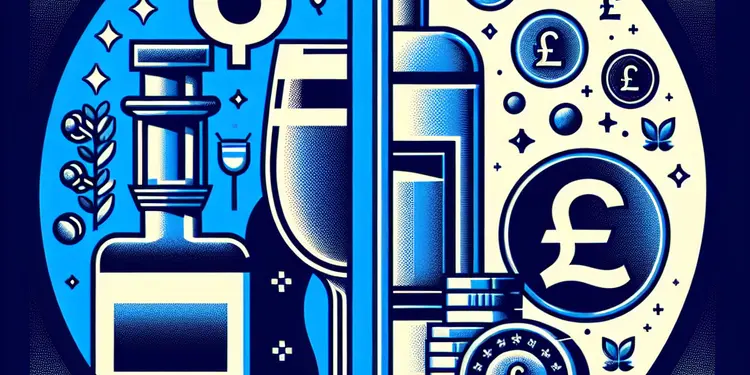
Can alcohol be consumed while taking Wegovy?
Relevance: 41%
-
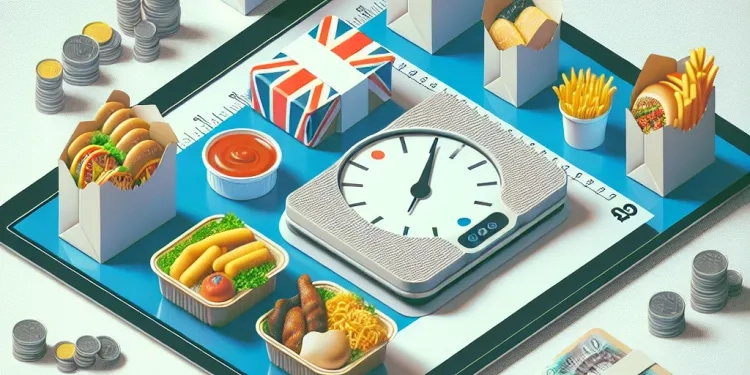
Britain's Love for Takeaways: How It’s Affecting Our Waistlines
Relevance: 40%
-
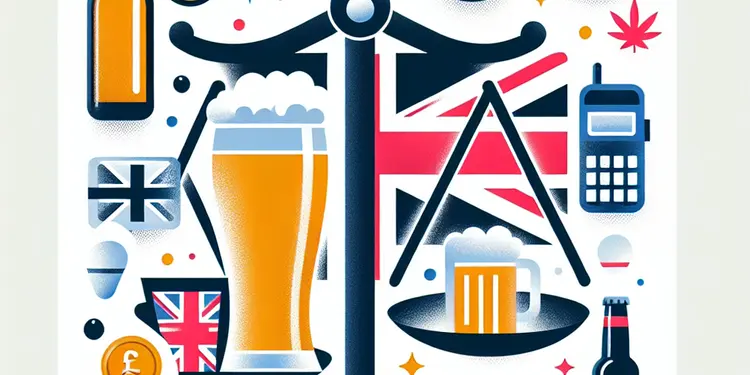
How does alcohol tolerance relate to binge drinking?
Relevance: 39%
-

Why is methanol sometimes found in illegally produced alcohol?
Relevance: 39%
-

What is Alcohol Rehab?
Relevance: 38%
-

What role does alcohol consumption play in bowel cancer risk?
Relevance: 37%
-

Living with Foetal Alcohol Spectrum Disorder (FASD), a mum’s journey (full version)
Relevance: 33%
-
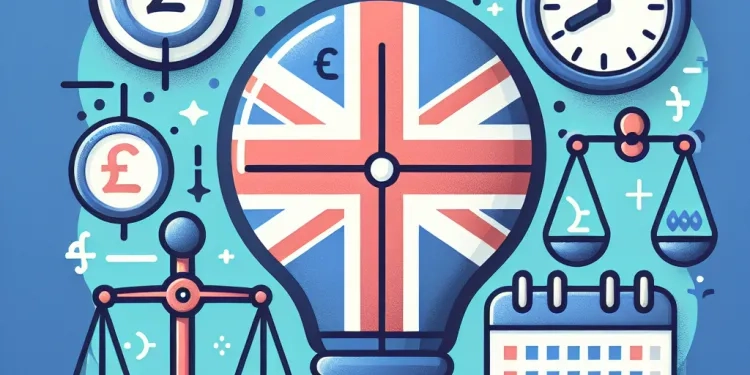
Can Ofgem or Octopus Energy change compensation rules in the future?
Relevance: 17%
-
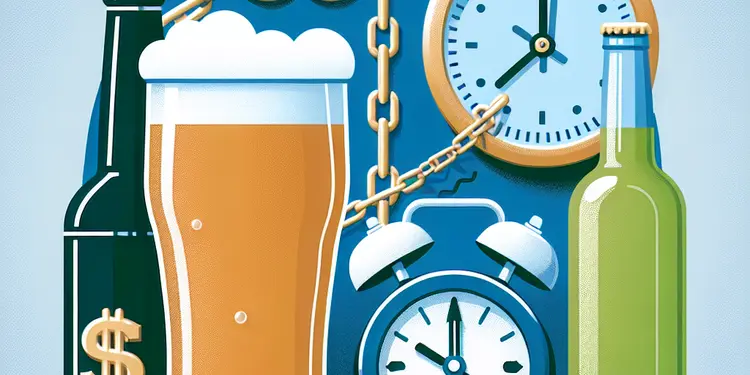
Can binge drinking lead to addiction?
Relevance: 16%
-

Are there any laws against binge drinking?
Relevance: 16%
-
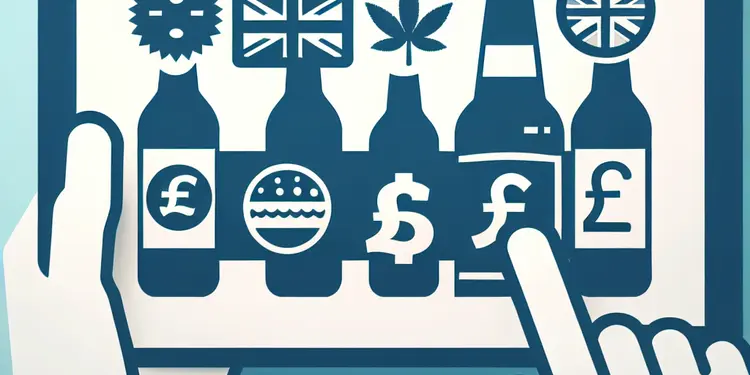
How can one reduce the risk of binge drinking?
Relevance: 16%
-

What are the differences between methanol and ethanol?
Relevance: 16%
-
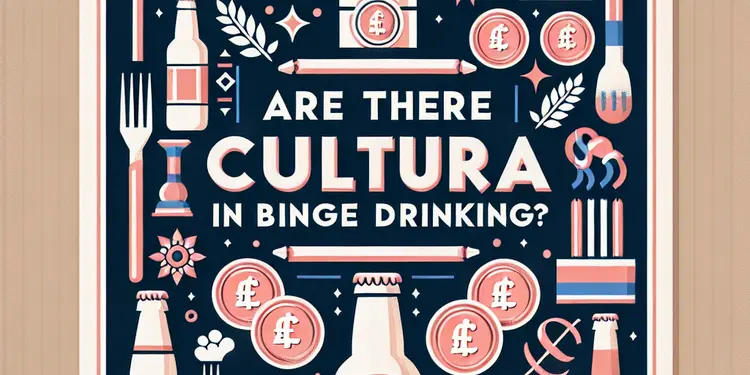
Are there cultural factors in binge drinking?
Relevance: 15%
-

Alcohol-Related Deaths in Scotland
Relevance: 15%
-
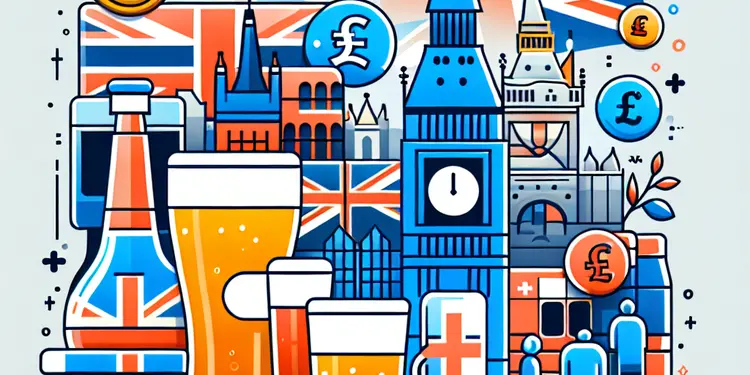
Why is binge drinking common among young adults?
Relevance: 15%
-
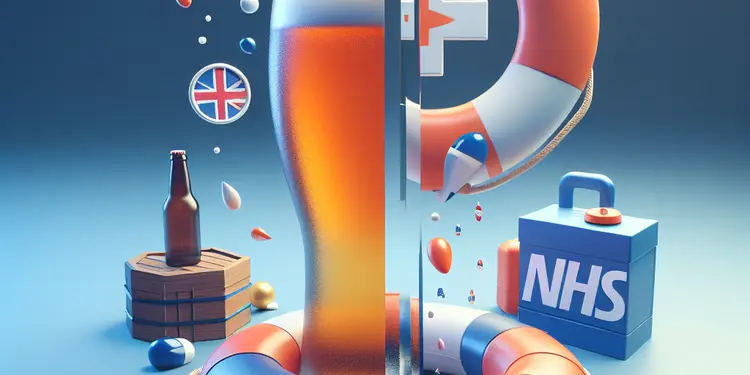
What resources are available for someone struggling with binge drinking?
Relevance: 15%
-

How does driving under the influence relate to dangerous driving?
Relevance: 15%
-

How is binge drinking typically defined?
Relevance: 15%
-
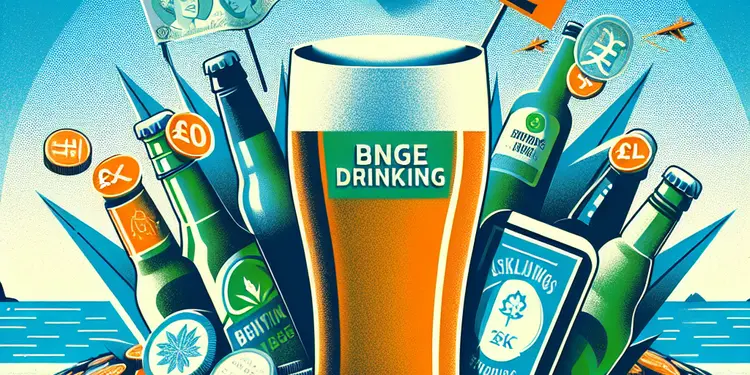
What are the risks associated with binge drinking?
Relevance: 15%
-
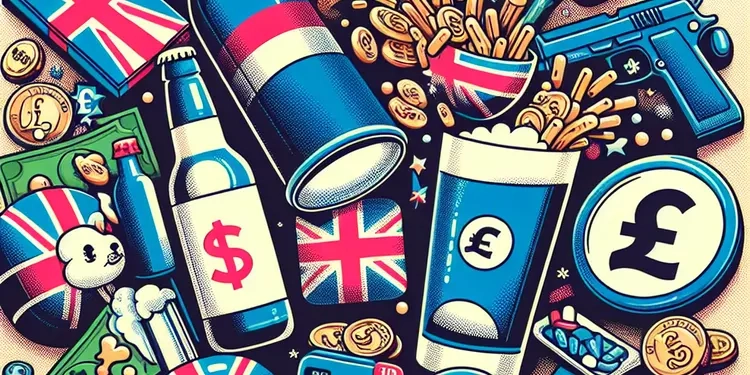
What is binge drinking?
Relevance: 15%
-

When was the energy price cap introduced?
Relevance: 15%
-
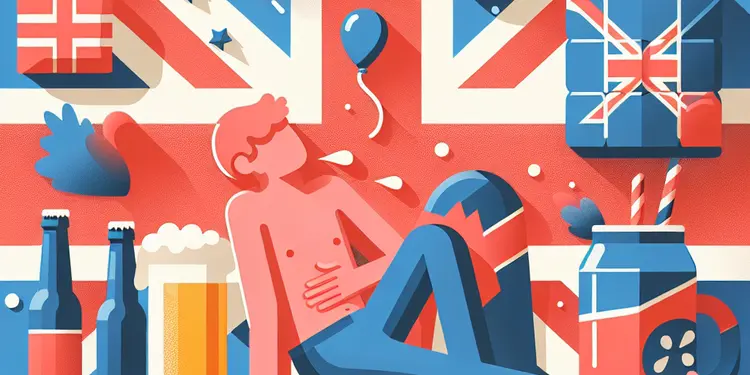
How does binge drinking affect mental health?
Relevance: 15%
-

What is fomepizole and how does it work?
Relevance: 15%
-
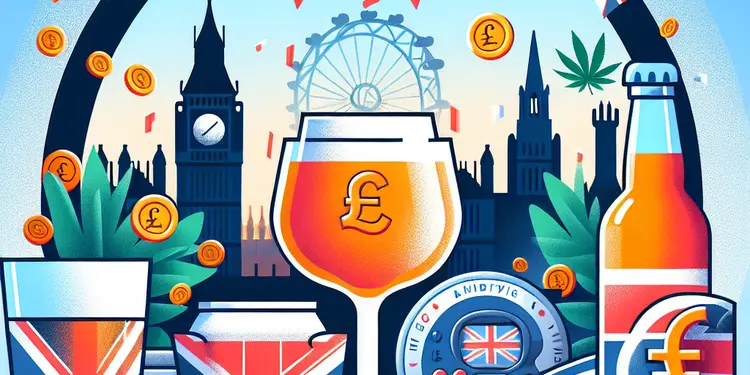
Can binge drinking affect physical health?
Relevance: 14%
-
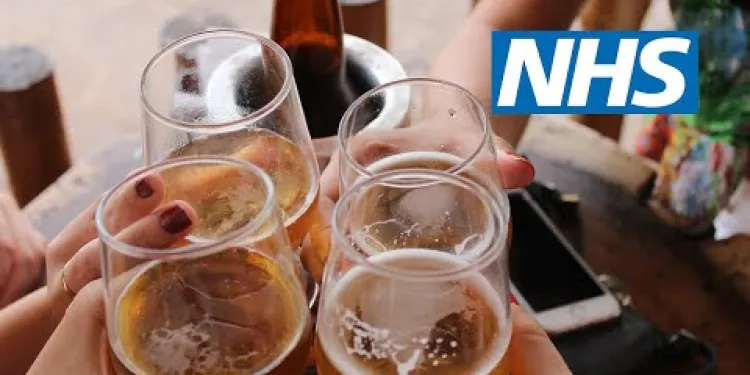
Liver disease | NHS
Relevance: 14%
-

Does the energy price cap apply to all energy tariffs?
Relevance: 14%
-

How can methanol poisoning be prevented?
Relevance: 14%
-

How does methanol poisoning differ from ethanol poisoning?
Relevance: 14%
-
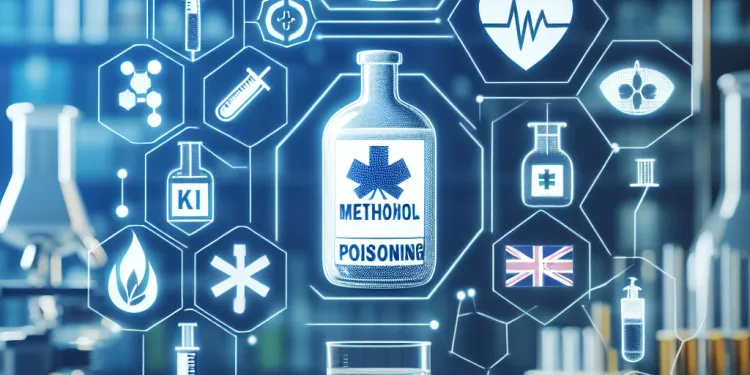
What is methanol poisoning?
Relevance: 14%
-

How quickly do symptoms appear after a drink has been spiked?
Relevance: 14%
-

How does binge drinking affect the brain?
Relevance: 14%
-

Is binge drinking more common in any specific demographic?
Relevance: 13%
5 Facts about Alcohol and Britain
1. Historical Love Affair
Britain's relationship with alcohol extends back centuries. The local pubs have been community hubs since the Middle Ages. They were initially places where travelers could find both sustenance and shelter. Over time, pubs evolved to become an intrinsic part of British social life, serving as gathering spots for celebrations, discussions, and leisure.
2. The Gin Craze
In the 18th century, Britain experienced what was famously known as the "Gin Craze." This period saw an extraordinary surge in gin consumption, primarily driven by the availability of cheap grain and liberal distillation laws. The societal impact was significant, leading to high levels of alcoholism and social issues, which eventually prompted governmental reforms to regulate gin production and sales.
3. Drinking Culture
Modern Britain maintains a robust drinking culture. Pubs remain a cornerstone of British social life. According to surveys and studies, drinking is considered an essential social activity, with beer, cider, and ale being particularly popular choices. While wine and spirits are also enjoyed, the British pint remains a symbol of camaraderie and tradition.
4. Health Campaigns
In recent years, there has been growing awareness of the health impacts of alcohol consumption. The NHS and various health organizations have launched initiatives to promote moderation and educate the public on the risks of excessive drinking. Campaigns like "Dry January" encourage people to take a break from alcohol to improve their overall well-being.
5. Legislation and Licensing
The UK's alcohol licensing laws have undergone multiple changes through the years. The Licensing Act 2003 introduced significant reforms, allowing venues more flexibility in their opening hours but imposing stricter checks to prevent underage drinking and alcohol-related disturbances. Licensing authorities continue to play a crucial role in balancing public health concerns with the economic benefits of alcohol sales.
5 Facts about Alcohol and Britain
1. A Long History with Alcohol
People in Britain have been drinking alcohol for hundreds of years. Local pubs have been popular places since the Middle Ages. Pubs started as places where travelers could eat and sleep. Over time, pubs became very important for British people to meet, celebrate, and relax.
2. The Gin Craze
In the 1700s, lots of people in Britain drank gin. This time was called the "Gin Craze." Gin was very cheap and easy to make. Many people drank too much, and this caused problems. The government made new rules to control how gin was made and sold.
3. Drinking Culture
Today, drinking is still a big part of life in Britain. Pubs are important places where people meet friends and have fun. Beer, cider, and ale are popular drinks. People also drink wine and spirits. Having a pint of beer with friends is a British tradition.
4. Health Campaigns
Now, more people know about the health risks of drinking too much alcohol. The NHS and other health groups try to teach people to drink less. Campaigns like "Dry January" encourage people to stop drinking for a month to feel healthier.
5. Laws and Rules
There have been many changes to the laws about alcohol in the UK. In 2003, a new law gave pubs more freedom on when they could open but also made sure to check the age of people buying alcohol. These rules help keep people safe and healthy.
Frequently Asked Questions
What is the legal drinking age in the UK?
The legal drinking age in the UK is 18. Individuals must be at least 18 years old to buy alcoholic beverages in pubs, bars, and retail stores.
Can someone under 18 drink alcohol with a meal in a restaurant?
In the UK, someone who is 16 or 17 years old can legally drink beer, wine, or cider with a meal if it is bought by an adult and they are accompanied by an adult.
Are there any laws against drinking alcohol in public places in Britain?
Public drinking is not entirely forbidden in the UK. However, certain local areas enforce Public Space Protection Orders (PSPOs) that can restrict alcohol consumption in public places.
What is the recommended daily alcohol limit in the UK?
The UK Chief Medical Officers' guideline advises that both men and women should not regularly drink more than 14 units of alcohol per week, equivalent to around six pints of average-strength beer or 10 small glasses of low-strength wine.
What are the penalties for drink driving in the UK?
Penalties for drink driving in the UK can be severe, including a minimum 12-month driving ban, an unlimited fine, up to 6 months in prison, and a criminal record. The actual punishment depends on the severity of the offense.
How many units of alcohol are in a pint of beer in the UK?
A pint of average-strength beer (4% ABV) contains around 2.3 units of alcohol.
What is Dry January?
Dry January is a public health campaign that encourages individuals to abstain from alcohol for the entire month of January. It aims to raise awareness of alcohol-related health issues and promote healthier drinking habits.
Can alcohol be sold on Christmas Day in the UK?
In the UK, alcohol can be sold on Christmas Day, but only from licensed premises such as pubs, and they are usually subject to restricted hours. Retail stores generally do not sell alcohol on Christmas Day.
Is it illegal to serve alcohol to someone who is already drunk in the UK?
Yes, it is illegal to knowingly serve alcohol to someone who is already drunk on licensed premises. This falls under the Licensing Act 2003 and can result in fines or penalties for the establishment and employees involved.
What is the UK's stance on alcohol advertising?
In the UK, alcohol advertising is regulated to ensure it is socially responsible and does not target minors. The Advertising Standards Authority (ASA) oversees these regulations.
How does the UK's alcohol consumption compare internationally?
Studies have shown that the UK's alcohol consumption is moderately high compared to global standards. The World Health Organization reports that the UK ranks in the middle range among European nations in terms of per capita alcohol consumption.
What are the health risks associated with alcohol consumption?
Regularly drinking more than the recommended limits can lead to several health issues, including liver disease, heart disease, various cancers, mental health disorders, and addiction.
Are there any alcohol-free options widely available in the UK?
Yes, there is an increasing variety of alcohol-free and low-alcohol beverages available in the UK, including beers, wines, and spirits, as many people seek healthier lifestyle choices.
What are the effects of alcohol on mental health?
Excessive alcohol consumption can negatively impact mental health, contributing to conditions such as depression, anxiety, and memory problems. It can also aggravate existing mental health disorders.
Is it common to binge drink in the UK?
Binge drinking, which involves consuming large amounts of alcohol in a short period, is a recognized issue in the UK. Public health campaigns aim to reduce its prevalence due to the associated health risks.
What age can you drink alcohol in the UK?
In the UK, you have to be a certain age to drink alcohol.
You can drink alcohol at 18 years old.
If you are younger, you might need to wait or ask an adult.
If you find reading hard, you can:
- Ask someone to read with you.
- Use a tool that reads words out loud.
- Highlight words you know.
You need to be 18 years old to drink alcohol in the UK. You can buy drinks like beer and wine in pubs, bars, and shops when you are 18.
Can a person under 18 drink alcohol with food in a restaurant?
Can a person who is younger than 18 have a drink like beer or wine while eating in a restaurant? This means, is it okay for them to drink a little alcohol when they are having a meal?
If you are not sure, you can ask an adult. They can help you understand the rules.
In the UK, if you are 16 or 17 years old, you can drink beer, wine, or cider with your meal. But, an adult must buy it for you and be with you when you drink it.
Can you drink alcohol outside in public in Britain?
In Britain, some laws say where you can and cannot drink alcohol. A law is a rule everyone must follow. If you want to know about drinking outside, you can:
- Ask a grown-up to help you understand the rules.
- Look at signs in the area. They might tell you if it's okay or not.
- Use the internet with a grown-up to find more information about the rules in Britain.
In the UK, you can drink outside in some areas. But some places have special rules called Public Space Protection Orders (PSPOs). These rules can stop people from drinking alcohol in public.
How much alcohol can you safely drink each day in the UK?
Here is some helpful advice:
- It is good for adults to have no more than 14 drinks in one week.
- A drink is one small glass of wine, one pint of beer, or one shot of spirits.
- Try to spread your drinks over three or more days.
Some helpful tips are:
- Use a calendar to track your drinks.
- Drink water between alcoholic drinks.
- Ask a friend to help you stay on track.
The UK health experts say both men and women should not drink more than 14 units of alcohol each week. This is like having around six pints of normal beer or 10 small glasses of weak wine.
What happens if you drive after drinking alcohol in the UK?
If you drive after drinking alcohol, you can get into trouble.
You might have to pay money as a fine.
You could lose your driving license.
You might have to go to court.
You could even go to jail.
It's safer to not drink and drive.
You can use tools like talking car apps that help you follow rules. They keep you safe and remind you not to drink and drive.
If you drive after drinking alcohol in the UK, you can get into big trouble. You might not be allowed to drive for at least 12 months. You might have to pay a lot of money. You could even go to jail for up to 6 months. You will also have a criminal record. How bad your punishment is depends on what happened.
How much alcohol is in a pint of beer in the UK?
A "unit" is a way to measure alcohol.
In the UK, a pint of beer usually has 2 to 3 units of alcohol.
If you want to learn more, you can use a phone app or ask a friend for help.
A pint of beer with average strength (4% alcohol) has about 2.3 units of alcohol.
What is Dry January?
"Dry January" means not drinking alcohol in January. It's a way to help people be healthy. Try not drinking beer, wine, or any alcohol for one month. You can drink water, juice, or soda instead.
Ask a friend to join you. It's easier with support! You can also use a calendar to mark each day you don't drink. Good luck trying Dry January!
Dry January is a plan to help people stay away from alcohol for all of January. It helps people know more about health problems that come from drinking and teaches how to drink in a healthier way.
Can you buy alcohol on Christmas Day in the UK?
In the UK, some places do not sell alcohol on Christmas Day. You should check if the shops or pubs near you are open and if they sell alcohol on that day.
Tips to help you:
- Ask someone you trust to help you find out.
- Look online or call the shop or pub to ask.
In the UK, you can buy alcohol on Christmas Day at places like pubs that have a special license. But they may only sell it for a short time. Stores usually do not sell alcohol on Christmas Day.
If reading is hard, you can try using a ruler to follow the words. You can also read with a friend or family member. Listening to an audiobook while reading might help too.
Is it against the law to give more alcohol to someone who is already drunk in the UK?
In the UK, it is not allowed to give more alcohol to people who are already drunk.
- If you work in a bar or restaurant, you should not serve alcohol to drunk people.
- It is important to keep everyone safe.
- If you are not sure, ask for help from your manager or use a guide to help you make good choices.
Using pictures or symbols can help understand the rules better.
It is against the law to give alcohol to someone who is already drunk at a place with a license to sell alcohol. This is in the Licensing Act 2003. If someone does this, they can get in trouble and have to pay money as a fine.
What does the UK think about alcohol ads?
Here is some information about it in simple words:
- The UK has rules about how alcohol can be advertised.
- Ads must not make drinking alcohol seem fun or good.
- They can't be shown where lots of kids might see them.
- Ads must be honest about what alcohol does.
Helpful tips:
- Use pictures to help understand the rules.
- Talk to an adult if you have questions.
- Use audio or video to learn more easily.
In the UK, there are rules for ads about alcohol. These rules make sure that ads are responsible and do not aim at kids. The Advertising Standards Authority (ASA) checks these rules.
How much alcohol do people drink in the UK compared to other countries?
People in the UK drink a lot of alcohol. When we compare the UK to other countries around the world, they drink more than many places.
A big group called the World Health Organization says the UK is somewhere in the middle compared to other countries in Europe when it comes to how much alcohol people drink.
If you find reading difficult, you can use these tips:
- Read a little bit at a time.
- Use your finger to follow along.
- Ask someone to read with you.
- Try using an audio reader to listen to the text.
What can happen to your health if you drink alcohol?
Drinking too much alcohol can make you sick. It can hurt your liver, heart, and can even cause cancer. It can also affect your mind and make you addicted.
Here are some helpful tips:
- Try to count your drinks so you know when to stop.
- Drink slowly and have water in between drinks.
- Ask a friend for help if you find it hard to stop drinking.
Can you get drinks without alcohol in the UK?
Yes! You can find many drinks without alcohol in the UK. These are called alcohol-free drinks. Here are some places you can find them:
- Supermarkets: Places like Tesco, Sainsbury's, and ASDA sell alcohol-free drinks.
- Restaurants and cafes: Many places offer drinks without alcohol on their menus.
- Pubs and bars: Ask for alcohol-free drinks. They often have them.
If you're looking for alcohol-free options, here are some ideas:
- Ask for help: A shop worker can help you find alcohol-free drinks.
- Online search: Look on the internet for more alcohol-free drinks. You can buy them online.
These tools and tips can help you enjoy drinks without alcohol!
Yes, there are more and more drinks without alcohol or with little alcohol in the UK. You can find beers, wines, and spirits. Lots of people want to make healthier choices.
If you need help reading, you can try using tools that read the text out loud or ask someone to read with you.
How does drinking alcohol affect how we feel and think?
Drinking alcohol can change how we feel. It might make us feel happy at first, but later we might feel sad or angry.
Alcohol can also make us forget things. It can make it hard to think clearly.
If someone drinks too much alcohol often, it might make them feel really down or worried.
If you are worried about drinking, talk to someone you trust like a family member, friend, or teacher.
There are also apps and tools that can help. Ask someone to help you find them.
Drinking too much alcohol can be bad for your mind. It can cause sadness, worry, and make it hard to remember things. If you already have trouble with your mental health, drinking too much can make it worse.
Do a lot of people drink a lot of alcohol at once in the UK?
Binge drinking means drinking a lot of alcohol quickly. This is a problem in the UK. Health groups try to stop it because it can make people sick.
Useful Links
This website offers general information and is not a substitute for professional advice.
Always seek guidance from qualified professionals.
If you have any medical concerns or need urgent help, contact a healthcare professional or emergency services immediately.
Some of this content was generated with AI assistance. We’ve done our best to keep it accurate, helpful, and human-friendly.
- Ergsy carfully checks the information in the videos we provide here.
- Videos shown by Youtube after a video has completed, have NOT been reviewed by ERGSY.
- To view, click the arrow in centre of video.
- Most of the videos you find here will have subtitles and/or closed captions available.
- You may need to turn these on, and choose your preferred language.
- Go to the video you'd like to watch.
- If closed captions (CC) are available, settings will be visible on the bottom right of the video player.
- To turn on Captions, click settings .
- To turn off Captions, click settings again.
More Items From Ergsy search
-

5 Facts about Alcohol and Britain
Relevance: 100%
-

What is alcohol poisoning?
Relevance: 47%
-

Alcohol Awarerness Week
Relevance: 47%
-

FASD Foetal alcohol
Relevance: 45%
-

What is safe alcohol consumption in Adults?
Relevance: 43%
-

Should I avoid alcohol during a heatwave?
Relevance: 42%
-

Can alcohol worsen sleep apnea?
Relevance: 42%
-

Is it possible for alcohol alone to cause similar symptoms?
Relevance: 41%
-

Can alcohol be consumed while taking Wegovy?
Relevance: 41%
-

Britain's Love for Takeaways: How It’s Affecting Our Waistlines
Relevance: 40%
-

How does alcohol tolerance relate to binge drinking?
Relevance: 39%
-

Why is methanol sometimes found in illegally produced alcohol?
Relevance: 39%
-

What is Alcohol Rehab?
Relevance: 38%
-

What role does alcohol consumption play in bowel cancer risk?
Relevance: 37%
-

Living with Foetal Alcohol Spectrum Disorder (FASD), a mum’s journey (full version)
Relevance: 33%
-

Can Ofgem or Octopus Energy change compensation rules in the future?
Relevance: 17%
-

Can binge drinking lead to addiction?
Relevance: 16%
-

Are there any laws against binge drinking?
Relevance: 16%
-

How can one reduce the risk of binge drinking?
Relevance: 16%
-

What are the differences between methanol and ethanol?
Relevance: 16%
-

Are there cultural factors in binge drinking?
Relevance: 15%
-

Alcohol-Related Deaths in Scotland
Relevance: 15%
-

Why is binge drinking common among young adults?
Relevance: 15%
-

What resources are available for someone struggling with binge drinking?
Relevance: 15%
-

How does driving under the influence relate to dangerous driving?
Relevance: 15%
-

How is binge drinking typically defined?
Relevance: 15%
-

What are the risks associated with binge drinking?
Relevance: 15%
-

What is binge drinking?
Relevance: 15%
-

When was the energy price cap introduced?
Relevance: 15%
-

How does binge drinking affect mental health?
Relevance: 15%
-

What is fomepizole and how does it work?
Relevance: 15%
-

Can binge drinking affect physical health?
Relevance: 14%
-

Liver disease | NHS
Relevance: 14%
-

Does the energy price cap apply to all energy tariffs?
Relevance: 14%
-

How can methanol poisoning be prevented?
Relevance: 14%
-

How does methanol poisoning differ from ethanol poisoning?
Relevance: 14%
-

What is methanol poisoning?
Relevance: 14%
-

How quickly do symptoms appear after a drink has been spiked?
Relevance: 14%
-

How does binge drinking affect the brain?
Relevance: 14%
-

Is binge drinking more common in any specific demographic?
Relevance: 13%


